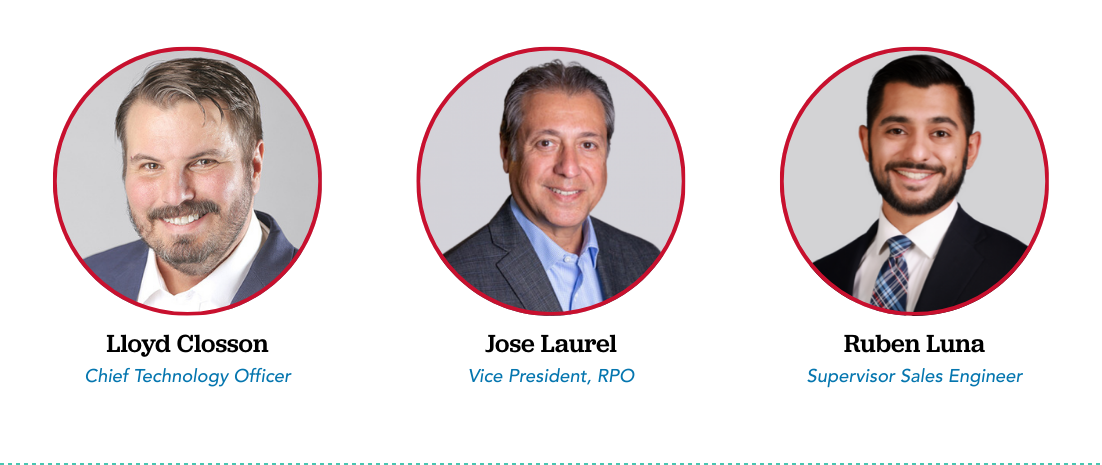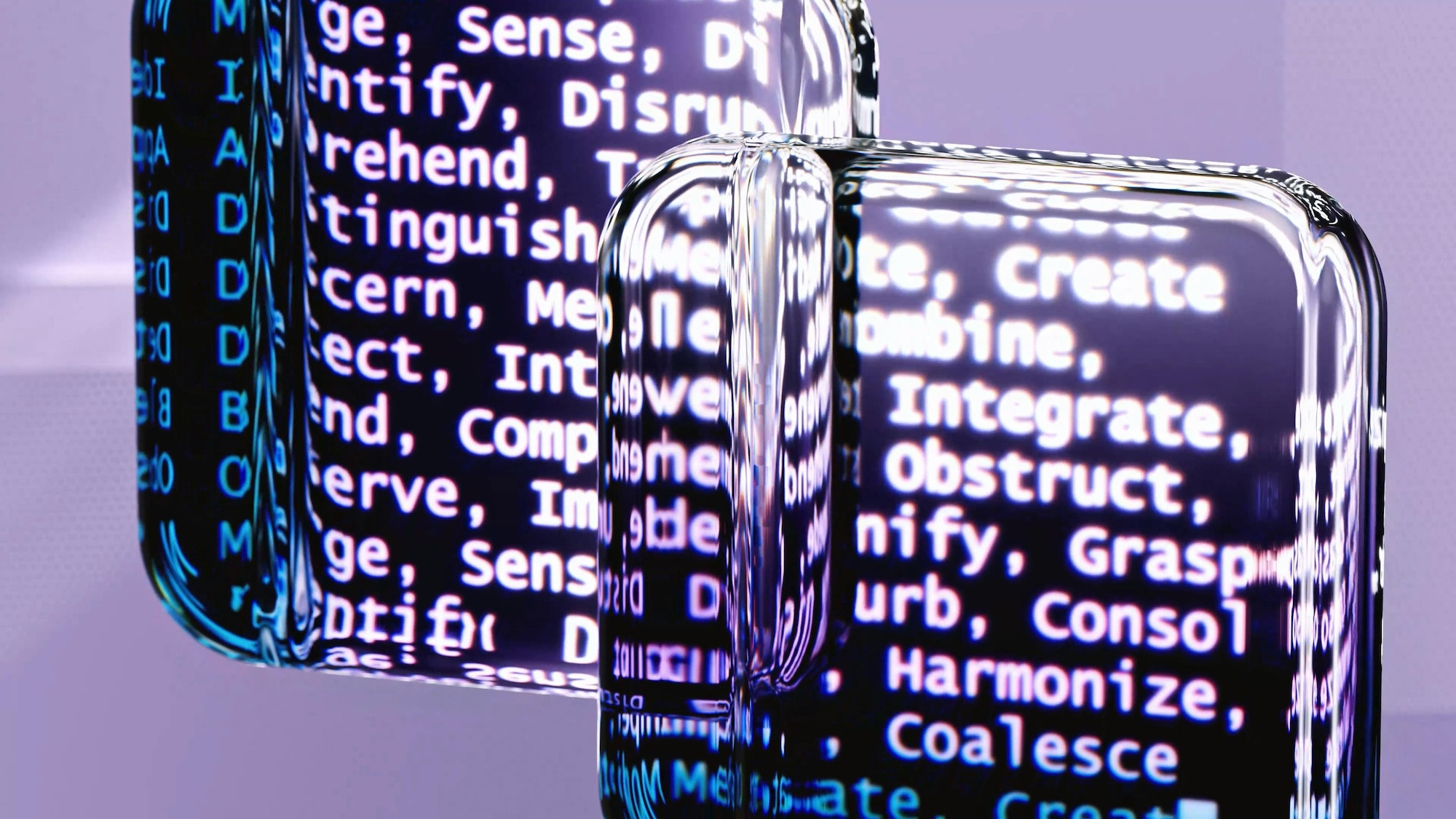Artificial intelligence (AI) is rapidly transforming the landscape of human resources, ushering in a new era of efficiency, personalization, and data-driven decision-making. From recruitment and onboarding to employee engagement and retention, AI is reshaping every facet of HR practices.
To gain insight into what the future of HR with AI looks like, we’ve asked some of G&A’s leading experts in HR and technology to share their perspectives. In this article, we’ll explore the challenges, opportunities, and ethical considerations that come with integrating AI into workforce management, while also providing some examples of AI in HR.
Before we dive in, let’s meet our experts:
- Lloyd Closson is G&A Partners’ chief technology officer and leads G&A’s creation and implementation of world-class human capital management (HCM) solutions.
- Jose Laurel, G&A’s vice president of Recruitment Process Outsourcing (RPO), has nearly 30 years of experience in professional employer organization (PEO) management. His expertise includes strategic planning, workforce optimization strategies, and talent acquisition.
- Ruben Luna, supervisor sales engineer at G&A, has been helping clients discover how HR technology can benefit their growing businesses for over 5 years.

How AI Is Transforming Core HR Functions
Though automation within HR isn’t new, the adoption of AI in HR has accelerated in recent years due to significant technological advancements and the introduction of generative AI. These advancements and the ability of AI to analyze large amounts of data and make predictions have helped HR teams improve core HR functions.
In compliance, for example, AI-powered tools can automatically flag potential compliance issues to help ensure adherence to labor laws. AI is also helping recruiters streamline hiring processes, and AI platforms that gather instant employee feedback have helped HR teams identify how to improve employee engagement.
In this article, we asked our experts how they anticipate AI will continue to impact these core HR functions. This is what they had to say.
How do you see AI impacting recruiting and talent acquisition over the next five years?
LAUREL: Recruiting and talent acquisition will experience significant shifts as AI-enabled processes create a smoother journey for candidates and empower growing businesses to make more informed hiring decisions. For example, AI algorithms will help businesses more quickly identify top candidates based on skills and qualifications and predict candidate success and compatibility, while eliminating unconscious bias throughout the process.
The candidate process will also improve – which is great for small and mid-sized businesses that want to compete with larger businesses for top talent. Imagine AI-powered chatbots that handle communication with candidates, interview schedules, and preliminary assessments – freeing businesses and recruiters to focus on more personalized interactions with candidates. Chatbots will also be able to create an interview process that is consistent, fair, and objective to ensure all candidates have a uniform experience.
Leaders will also benefit from advancements in AI. They will have access to data points they may never have utilized before, such as forecasts for hiring needs, candidate success, and potential skills gaps, providing a wealth of information to help them make more informed hiring decisions.
What role will AI play in employee engagement and retention?
LUNA: There are seemingly endless opportunities for how AI will enhance employee engagement and retention, particularly for small and mid-sized businesses.
Mobile apps are becoming more popular and sophisticated within HR technology. These apps give employees 24/7 access to HR information and services. And when employees have HR-related questions, they can ask AI-powered chatbots that can provide immediate answers about leave balances, benefits, or policies. Quick responses not only improve employee satisfaction but also reduce the workload on HR teams.
HR leaders are always seeking ways to improve communication with their workforce, and this is another area where AI will make a major impact. AI-driven tools can analyze communication patterns and employee sentiment, which will help HR teams proactively identify and address issues before they escalate. AI can also help personalize employee communications based on individual employee preferences, which will improve how well the messaging resonates with employees.
Another area where AI can play a vital role is in helping leaders show employees their total compensation — everything from salary to benefits, bonuses, and more. AI can pull this data from multiple sources and then provide the information in a clear format. This transparency can significantly boost employee satisfaction and retention.
AI is also changing employee engagement through predictive analytics. Imagine being alerted before an employee begins searching for a new job. AI is able to analyze data and identify patterns that may suggest an employee is at risk of leaving. Having this knowledge – before an employee has already decided to leave – allows HR teams to intervene early with targeted retention strategies.
Challenges and Ethical Considerations with AI in HR
AI brings improved efficiency and data-driven decisions, but it also comes with challenges and ethical considerations, such as how to implement AI tools responsibly, ensure fairness in AI-driven processes, and maintain transparency with employees about the use of their data.
Here’s some feedback from our G&A’s experts on these challenges:
What ethical considerations should businesses keep in mind when implementing AI in HR?
CLOSSON: When we talk about ethical considerations with AI in HR, it's essential to consider how we support and communicate with our employees during implementation. Open dialogue is crucial. We need to have honest discussions with our workforce about the changes AI will bring and how it will impact their roles and processes.
Employee well-being is also a significant concern, as many will naturally feel apprehensive about AI's impact on their jobs. As leaders, we must address these concerns proactively and highlight how AI can enhance their work, making it more efficient and effective.
Another critical aspect is data security. Since HR processes involve sensitive employee information, we must prioritize robust security measures to protect this data within AI systems. By doing so, we build trust with our employees, who are watching carefully to see whether employers are using AI responsibly in the workplace.
Ultimately, we should strive to leverage AI's benefits and ensure that we do so in a way that respects our employees' interests and maintains their trust.
LAUREL: Business leaders must address ethical considerations in AI implementation within HR practices, particularly regarding bias. We know that machine learning models can inadvertently develop biases, whether from their training data or their developers’ unconscious biases. This can lead to discrimination during the hiring process. Organizations should work with AI vendors to gain a clear understanding of their algorithmic processes, then ensure the processes are compliant with ethical hiring practices.
Business leaders can also mitigate risk by taking actions such as implementing regular audits of their AI systems and using diverse datasets. But, ultimately, maintaining human oversight throughout the hiring process — or in any HR function that includes the use of AI — is essential to ensuring fair and ethical outcomes.
How can HR teams balance automation with maintaining a human touch in the workplace?
LAUREL: Even with the major advancements AI brings to the HR industry, it’s important to recognize that the human touch is invaluable to the work HR teams do.
Leaders should leverage technology to enhance efficiency while also preserving the personal connections that are so crucial in HR.
Where do we start, then? HR leaders should be strategic about where they implement AI. Identify tasks ideal for automation, such as resume screening, routine employee queries, or repetitive, time-consuming actions that don’t require human judgment or emotional intelligence.
Next, build in human oversight within HR processes. AI may analyze data and suggest a course of action. However, your HR professionals should make final decisions that require human judgment, especially when it comes to sensitive matters like hiring, promotions, or conflict resolution.
When communications with employees or job candidates are automated, ensure they have a way to reach an HR team member when they need to. This is particularly important for sensitive or complex matters where empathy is needed.
When HR teams are able to strike the right balance between automating routine, repetitive tasks and maintaining a human touch, they’ll be empowered to focus on strategic HR initiatives that help build better relationships, solve complex people problems, and create a positive candidate or employee experience.

The Future of HR Technology: Opportunities with AI
The transformative power of AI is shaping the future of HR technology, offering opportunities for innovation and growth. Small and mid-sized businesses that embrace this shift are poised to unlock new efficiencies, improve decision-making, and foster more dynamic and responsive work environments that drive organizational success.
Below, our experts share more about potential opportunities and how to prepare for the future of HR with AI:
What excites you most about the potential of AI in HR?
LUNA: It’s the potential impact AI can have on small and mid-sized businesses. What we often hear from business owners is that they don’t have the resources or time they need to tackle more strategic HR initiatives. With AI, though, some of those barriers will come down.
If we think about common reasons employees leave a job, a lack of professional development or growth opportunities is always near the top of the list. But, again, many small businesses lack the resources to provide these opportunities. That’s where AI and HR technology can come in.
AI can develop personalized learning and development programs within a learning management system (LMS) for employees. Rather than assigning your entire team the same professional development courses to improve general skills, AI can select specific courses for each employee based on their skills, interests, and career aspirations. That may be a suite of leadership courses for an up-and-coming manager or courses to improve communication skills for a new customer service representative.
This is an exciting development for small and mid-sized businesses. They can invest in the long-term development of each employee without dedicating significant time or resources to creating individualized development plans. In return, they will boost employee satisfaction and retention while building the skillsets of their workforce.
Another exciting opportunity is the ability to easily create customized training courses. Let’s say your business has a specific process that employees must learn during onboarding. There isn’t a course in your LMS that your company can use, so you pull a team member away from their regular duties to train each new hire. Or maybe you hire a freelancer to design an e-learning course that is customized to your business. With AI, small businesses will be able to quickly and effectively create custom courses that meet their unique needs and include tools to enhance engagement, such as interactive quizzes and assessments.
How should HR leaders prepare to adopt AI-driven solutions?
CLOSSON: As an HR leader looking to adopt AI-driven solutions, the key is to approach this transition strategically and thoughtfully. First, cultivate an agile mindset. The AI landscape is evolving rapidly — and that won’t change anytime soon — so we must be prepared to adapt as new technologies emerge.
Then assess your current business pain points. Where are we struggling? What processes are time-consuming or inefficient? Identifying these areas will help you pinpoint where AI could be the most impactful.
Next, look for tasks that could be automated. This might be repetitive administrative work, resume screening, or even parts of the onboarding process. The goal here is to free up your HR teams to focus on more strategic activities that require human insight and empathy.
Now it's time to start experimenting. There are several AI tools available, and the best way to find what works for your organization is to try them out. Ask vendors you currently work with what AI tools they offer. Start small and gather feedback. With this approach, you can learn and adjust before rolling out AI solutions more broadly.
Another key concern as HR leaders adopt AI goes beyond technology. It’s about preparing your workforce. HR leaders should be transparent about changes coming related to AI and how they will impact employees. Communication should be clear and ongoing about AI tools you’re implementing, why the company is using them, and how those AI tools will impact day-to-day work. Then, consider new skills your workforce may need to complement AI capabilities. Provide training to upskill your workforce and prepare them for the transition. It’s important to emphasize to your employees that AI will enhance their work, not replace it.
Finally, HR leaders must be mindful of the ethical implications of AI in HR, from ensuring data privacy and avoiding bias in AI-driven decisions to maintaining human oversight in processes.
Advice from G&A Partners’ Experts on Embracing AI
With AI, the future of HR is filled with exciting possibilities, but business leaders are often apprehensive when new technologies emerge.
In this section, our G&A’s experts offer advice on how to get started in the world of AI in HR:
What advice would you give businesses just starting to explore AI in HR?
CLOSSON: As businesses begin to explore AI in HR, I suggest they prioritize data protection from the beginning. Business owners must remember that HR deals with sensitive employee information. Protecting this data is a legal obligation, but it’s also critical to maintaining employee trust and company reputation.
Business and HR leaders should develop a comprehensive data protection plan that outlines how employee data is safeguarded throughout the employee lifecycle. Many AI tools and platforms have mechanisms in place to protect data, but it’s important that HR teams are fully aware of and utilizing these mechanisms.
Then begin to think beyond employee data. As other teams within the company begin using AI tools, leaders should ensure that company and customer data is properly protected. HR can develop policies that provide usage guidelines for employees, then offer training to ensure employees know how to properly protect sensitive data within AI tools.
Security within AI platforms is robust and developing quickly, which is good news. But it’s critical that leaders are aware of developments, regulations, and best practices regarding AI and data protection.
LAUREL: AI’s role in HR and talent acquisition will only continue to expand and will present new opportunities for excellence and innovation. Businesses will be able to leverage these technologies to reimagine recruiting for a smoother and better candidate experience and to bring higher-quality employees on board.
But leaders must be careful not to let the excitement of what’s possible overshadow this essential point: the success of AI is dependent upon high-quality data and proper guidance that people can provide based on their experiences, personal interactions, and intuition. With the right balance of human insight and technology, AI will potentially unlock incredible opportunities for businesses and help us build stronger, more connected teams.
Though the abundance and affordability of AI tools in HR makes it tempting to jump in with both feet, keep three thoughts in mind: Will the use of the AI tool enhance my craft and methodology to resolve HR issues? Is the implementation of AI in my current process a strategic move to not just keep pace but surpass the competition? And, finally, how will this AI technology define my HR practices, and is it consistent with my brand?
How G&A Can Help
G&A Partners’ team of HR and technology experts provides insights, guidance, and expertise to clients nationwide as part of our HR outsourcing solutions. From full-service PEO services to self-service, HR technology-focused services, G&A offers best-in-class client service and provides the people, processes, and technology to help businesses simplify HR and achieve their dreams.

